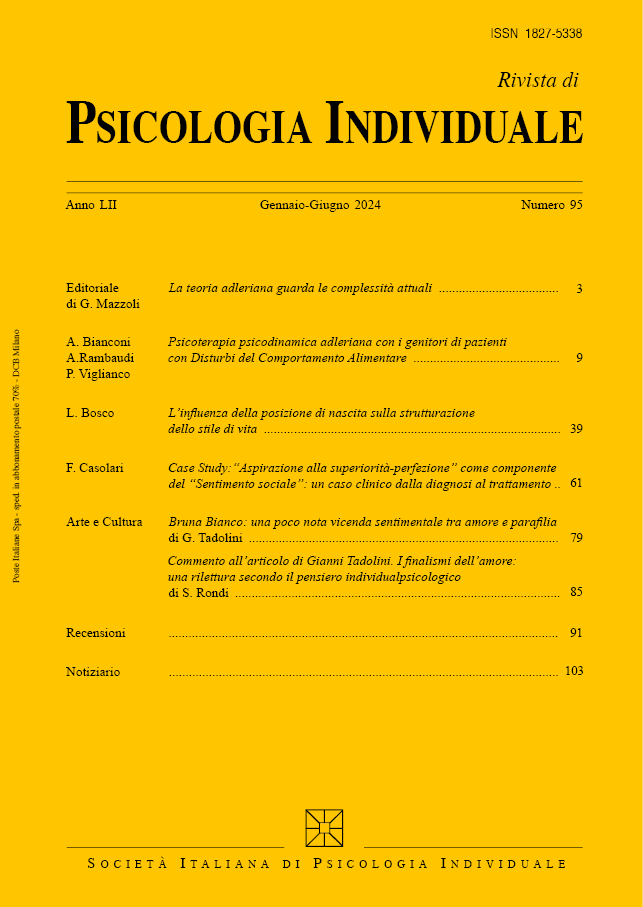La Psicologia Individuale nella scuola: il bambino difficile, ovvero l'insegnante in difficoltà
Parole chiave:
psicologia individuale, sentimento sociale, insegnamento, educazione, comprensione, collaborazione, affettività, formazioneAbstract
Il contributo esamina l’applicazione della psicologia individuale adleriana in ambito scolastico, con particolare attenzione al “bambino difficile” e all’insegnante in difficoltà. Gli autori evidenziano come i comportamenti problematici dei bambini siano spesso fraintesi dagli adulti, generando colpevolizzazione ed emarginazione. Gli insegnanti, privi di strumenti teorici adeguati, faticano a comprendere condotte che non rientrano nei modelli educativi tradizionali. La psicopedagogia adleriana viene proposta come risorsa utile per gli educatori, offrendo una lettura centrata sulle finalità del comportamento piuttosto che sulle sue cause immediate. Comprendere il “perché” dell’agire del bambino consente di costruire relazioni educative più efficaci e rispettose della sua individualità. Gli psicologi adleriani possono operare nella scuola anche come formatori, aiutando gli insegnanti a sviluppare una visione integrata dell’individuo, fondata sull’unità psicosomatica. Adler ha dedicato tre opere fondamentali all’educazione, tutte basate sull’ottimismo terapeutico, secondo cui nessun bambino è da considerarsi “senza speranza”. Il ruolo dell’insegnante è centrale: deve affrontare le manifestazioni attuali del bambino, mentre lo psicoterapeuta interviene nei casi più complessi. La collaborazione tra insegnante e psicologo è fondamentale per creare un ambiente educativo positivo. La psicopedagogia clinica adleriana comprende una componente diagnostica e una correttiva, offrendo ipotesi interpretative e strategie di intervento che favoriscono l’inserimento del bambino nel gruppo-classe. L’insegnante deve operare in un’ottica di comunicazione affettiva e fiducia reciproca, dove l’apprendimento passa attraverso la relazione persona-persona. Il sentimento sociale, considerato da Adler il “barometro della normalità”, è un obiettivo educativo centrale: il bambino deve essere educato a collaborare con gli altri, non a imporsi su di loro. Il modello di intervento proposto mira a promuovere un cambiamento personale e professionale negli educatori, sostenendo un processo educativo fondato su fiducia, coraggio e inclusione






